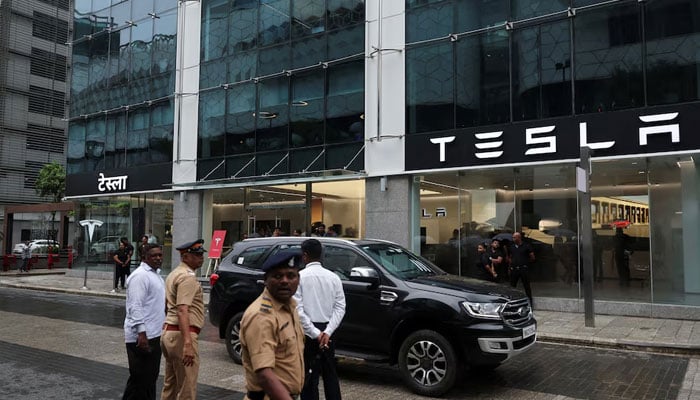Select Language:
US-based beverage brands frequently dominate store shelves across India. India stands out as the largest global market for WhatsApp users and is home to more outlets of a popular pizza chain than any other brand. American technology and social media platforms, including Facebook and WhatsApp, hold significant market share, while new smartphone and coffee shop openings often see long lines of eager customers.
However, mounting calls to support local businesses and opt for indigenous products are gaining momentum, both online and offline. This wave intensifies after Donald Trump imposed a 50% tariff on Indian imports, causing concerns for exporters and straining diplomatic relations with the U.S. Many entrepreneurs advocate for India to develop a stronger domestic manufacturing base, learning from countries like South Korea, whose products enjoy worldwide acclaim.
Amidst the anti-American sentiments, India’s Prime Minister Narendra Modi emphasized the importance of self-reliance during a speech in Bengaluru, encouraging domestic tech firms to prioritize Indian needs, though he did not specify any particular companies. While Indian retail rivals aggressively compete with foreign brands on local turf, expanding globally remains a notable challenge. Conversely, Indian IT giants like TCS and Infosys have firmly established international footprints, delivering software solutions worldwide.
Despite the protests, Tesla opened its second showroom in New Delhi with officials from India’s commerce ministry and the U.S. embassy present. Groups linked to Modi’s Bharatiya Janata Party launched small rallies nationwide, urging a boycott of American businesses. One representative from the Swadeshi Jagran Manch shared a circulated list of Indian substitutes for popular foreign products, promoting a sense of national pride and economic self-sufficiency.
Social media campaigns are also promoting a boycott of international food chains, with numerous restaurant logos featured in graphic posts. In Lucknow, 37-year-old Rajat Gupta expressed indifference toward tariff protests, happily enjoying his INR 49 ($0.55) coffee, emphasizing that tariffs are diplomatic matters and should not tarnish everyday pleasures.







